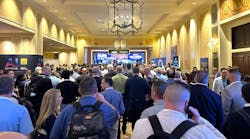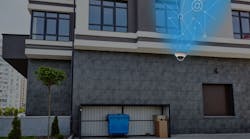Richland Park Estates residents hoped surveillance cameras they installed in February would reduce crime in their northeast Dallas neighborhood.
But they never imagined their crime rate would drop to almost nothing.
Dallas Police Department statistics show that police calls there fell from an average of 2.3 a week to 0.5 after the cameras were set up. Those calls include incidents such as vandalism, theft, graffiti and burglary.
"It has reduced crime by almost 80 percent for our area, and that's a very positive movement in the right direction," said Dick Becker, president of the homeowners association.
The neighborhood, which has caught attention for its surveillance project, plans to add several more cameras. Police are using two surveillance videos to prosecute suspects for vandalism and attempted burglary.
Meanwhile, police calls to an adjacent neighborhood have also been reduced, while calls to the two neighborhoods south of Richland Park Estates have held steady or increased. One expert says crime probably migrated south to areas without cameras.
Sgt. Rector McCollum of the Dallas Police Department's northeast division said that while the cameras are a positive step, it's difficult to solely credit them for Richland Park Estates' crime reduction - or for the increase in activity nearby.
The department concentrates its resources on areas undergoing spikes in crime, Sgt. McCollum said. For instance, officials increased neighborhood-policing efforts when the Richland Park neighborhood, which includes Richland Park Estates, saw an increase in residential burglaries in November.
"When the PD targeted that area, in one month's time we cut burglaries in half," he said. "That started a down-trend that's maintained today."
Anastasia Loukaitou-Sideris, chairwoman of the urban and regional planning department at the University of California, Los Angeles, said police efforts and Richland Park Estates' cameras probably prompted criminals to move elsewhere - and probably nearby.
"Criminals are rational individuals and really do not want to be caught," she said. "They describe the search for potential victims like going shopping. They tend to shop close to home - within a 1- to 2-mile range - and concentrated along familiar routes but where they believe they are not going to be caught."
Dr. Loukaitou-Sideris said the cameras create a defensible space that discourages criminals from entering.
"The criminal thinks he'll be seen, so he would rather do it elsewhere, and usually the elsewhere is in the immediate area," she said.
Richland Park Estates' 143 homeowners were so fed up with neighborhood crime last year that most of them agreed to kick in at least $50 apiece to place six cameras on their streets and alleyways.
With a password, Crime Watch volunteers can access surveillance feeds on a computer from their homes. Signs at neighborhood entrances tell visitors they are under surveillance.
Crime Watch chairwoman Diane Mott practically gushes when she talks about how the system has made people feel safer and had boosted involvement in neighborhood watch efforts.
Cameras are one of the best things a neighborhood can use to fight crime because they stop crime before it happens, Mrs. Mott said.
"The surveillance system has worked much better than I even expected," she said Wednesday before dropping the phone to run outside and investigate a suspicious vehicle she saw on camera. The unmarked truck, with a paper license plate on the back and metal tag on the front, quickly sped away. She reported the incident to police.
Presidents of nearby neighborhood associations say they, too, have taken steps to reduce crime.
Robert Pitt, president of adjacent Whispering Hills, where crime has declined since Richland Park Estates' cameras were installed, said his neighborhood has added more volunteer patrollers and increased its use of off-duty police officers.
Steve Wakefield, association president in the Woodbridge neighborhood, where crime rates have risen significantly, said his neighbors are being encouraged to report more incidents.
But he's keeping an eye on Richland Park Estates' success.
"A lot of people are taking a kind of wait-and-see attitude, because cameras are a fairly new development," he said. "If the neighborhood can sustain that success for six months to a year, then I think that would be pretty telling."
Butch Davis, president of the Dallas security company that installed Richland Park Estates' cameras, said the proof is at hand. He said the neighborhood's cameras first reduced traffic and trespassing and then provided usable video when needed by investigators.
The results have grabbed attention nationally.
"When you start quoting that kind of success, it gets everybody's attention," he said.
His company, Omni-Watch Systems, should have 10 to 15 surveillance systems operating in North Texas neighborhoods by Labor Day, he said. He says he's also in discussions with several homeowners groups around the country.
Mrs. Mott said the cameras work so well, they may eventually put her out of the crime-watch business.
"I may have to move to a different neighborhood," she said.
E-mail [email protected]


